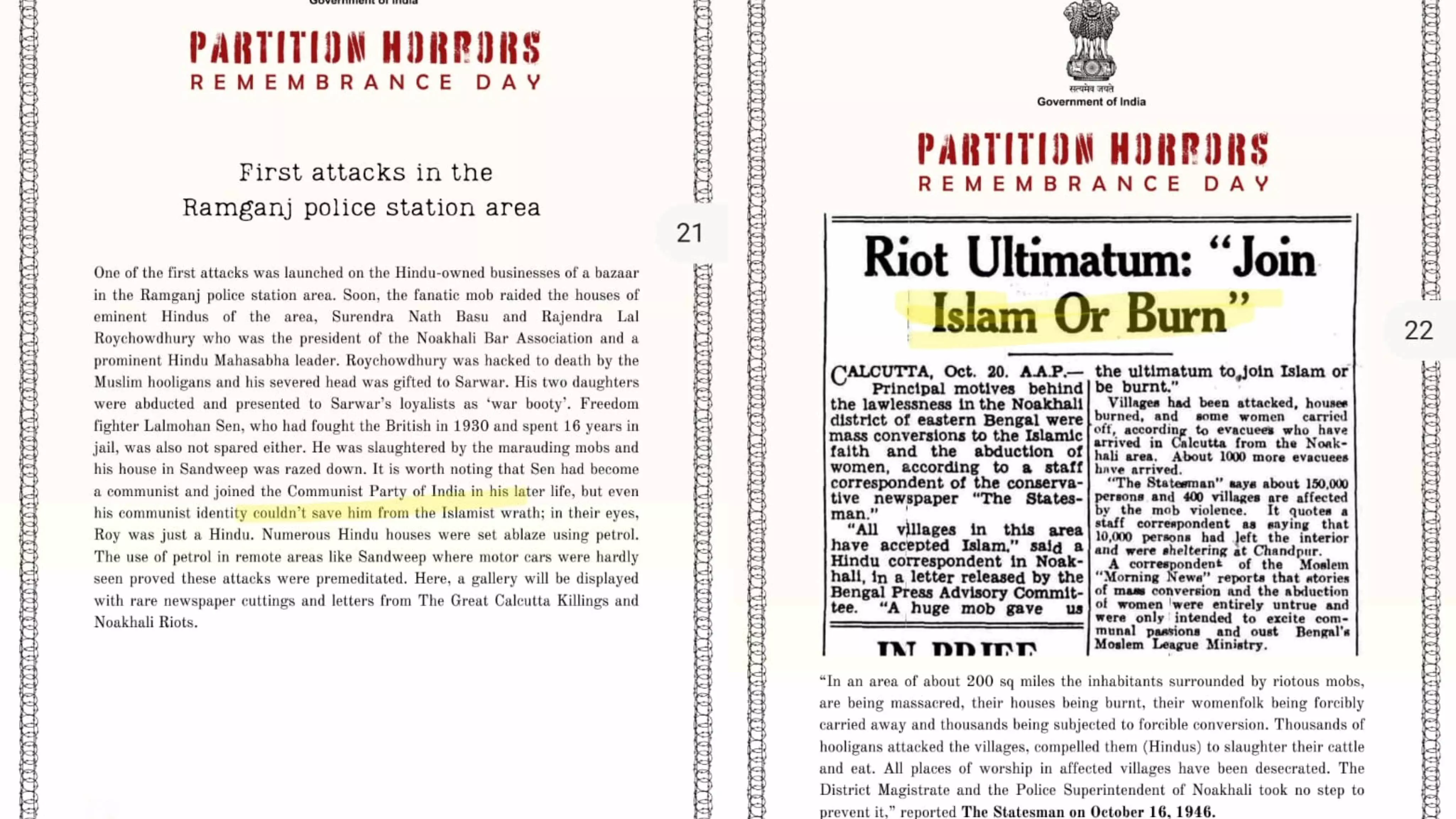`Partition Horrors Remembrance Day’: Hyderabad stands as beacon of hope as India debates horror
Several schools and teachers have voiced their objections to the government’s directive
By Anoushka Caroline Williams
Hyderabad: The Centre has declared August 14 as `Partition Horrors Remembrance Day’ to remember the tragedies associated with the partition of India in 1947.
Schools across the country have been instructed to follow Standard Operating Procedures (SOPs) for organizing exhibitions that showcase the violent events and mass suffering of that time.
However, this initiative has sparked concern among educators, parents, and mental health professionals about the potential psychological impact on students.
Objections Raised by Schools and Educators
Several schools and teachers have voiced their objections to the government’s directive, questioning the appropriateness of exposing young minds to the graphic and traumatic content outlined in the exhibition material.
Many educators argue that while it is important to acknowledge historical events, how these are being presented may not be suitable for children.
"We understand the significance of remembering history, but presenting it in such a stark, violent manner to children could lead to unintended consequences. The imagery and language in the exhibition materials are quite distressing," said Shamita Bhattacharjee, school principal of St Andrews High School, Keesara.
Suchitra Kamineni, another teacher from DAV public school commented, "We are concerned about how these narratives might affect students, especially those in the lower grades. Children might not have the maturity to process these complex and painful historical events appropriately."
Parental Concerns
Parents have also expressed their apprehensions, questioning whether such exhibitions could instill fear or prejudice in their children. "I believe children must learn about history, but there is a way to do it that is age-appropriate and sensitive”, said Rajesh Sharma, a concerned parent.
Another parent, Meena Iyer added, "The mention of phrases like 'Islamist wrath' and 'Join Islam or burn' in the exhibition material is particularly troubling. This could potentially sow seeds of division rather than promote understanding among young minds."
Concerns over language and content
Critics of the initiative are particularly concerned with the language used in the exhibition material.
While the SOPs clearly state that "no section of society should be hurt," the inclusion of terms such as "Islamist wrath" and references to forced conversions during partition have been seen as inflammatory.
These phrases have sparked fears that the exhibition might unintentionally promote communal tension.
Dr. Alok Kumar, a Hyderabad-based child psychologist, explained, "Children are impressionable, and exposing them to such stark, graphic content without a proper context can lead to confusion, fear, and even trauma. There is also a risk that they might internalize certain biases if these narratives are not presented in a balanced way."
Need for a Balanced Approach
Many educators and parents are calling for a more balanced approach to teaching history, one that honors the memories of those who suffered during the partition without exacerbating current social divisions.
Some suggest that the focus should be on promoting peace, reconciliation, and the lessons learned from history rather than solely highlighting the horrors.
"History should be taught with the intent of fostering understanding and empathy, not fear or hatred," said Gayatri Dubey, a history teacher from Hyderabad Public School, Begumpet. "There are ways to remember the past that encourage unity rather than division."